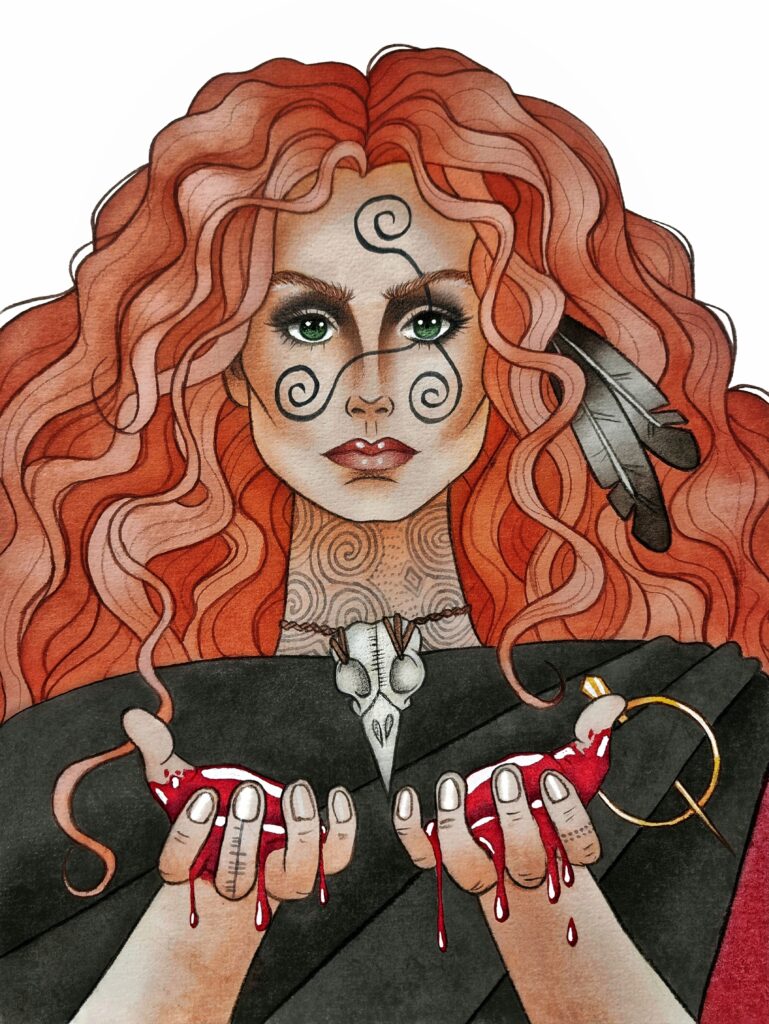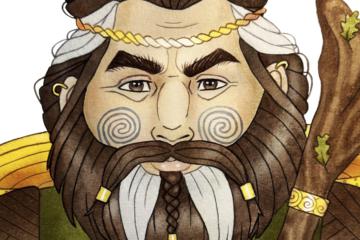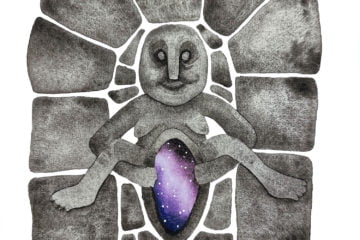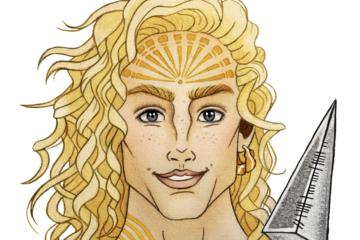
I have written before about the mysterious ancient Goddess known as The Morrígan, the shape-shifting ‘Phantom Queen’ of the Tuatha Dé Danann. I want to share here a more in-depth look at her role in The Second Battle Of Moytura, a bloody battle in which she played a key part and truly lived up to her reputation as a fierce Goddess of war and fate.
Planning The Battle
The Second Battle of Moytura took place around 3000 years ago, in what is now modern-day Connaught. It was fought between the divine race of supernatural beings known as the Tuatha Dé Danann, and their oppressors who were known as the Fomorians. The Morrígan’s first appearance in this tale comes after Lugh has joined the court of King Nuada at Tara and begun to help the Tuatha Dé Danann to plan their battle against the Fomorians.
During the planning process, she helps to get the ball rolling with the leaders who would be taking part, meeting with Lugh and calling on him with an inspiring speech to go to battle and overthrow their enemies without mercy.
She then meets with the chief of the Tuatha Dé Danann, known as The Daghda. They meet around the time of Samhain, as they do every year at this time, at a pre-arranged location beside the River Unshin. When The Daghda arrives, she is standing with one foot on either bank of the river washing her genitals. The pair sleep together, and afterwards speak of the battle to come.
She tells the Daghda to strip his land at the location where the battle is to take place, and to gather together the armies of the Tuatha Dé Danann at this spot. She then tells him that she herself will go and attack the Fomorian King Indech, and take from him the blood of his heart and kidneys along with his battle zeal using her magic.
True to her word, she returns to where the Tuatha Dé Danann are gathered and publicly presents his blood to the armies of the Tuatha Dé Danann in her two palms, filling them with inspiration for the fighting to come.
The Battle Begins
Her next appearance is just before the fight, when Lugh asks the Tuatha Dé Danann what skills they will contribute to the battle. They each speak of their abilities, and once again The Morrígan boldly promises to bring bloody destruction to her enemies.
Soon after, the battle commences. The two sides begin to fight, and after some time it eventually seems that the Tuatha Dé Danann are beginning to lose to the Fomorians. At this moment The Morrígan appears again, chanting incitement to the army and rousing them to achieve bloody victory.
After The Battle
After the battle, the victorious Tuatha Dé Danann are gathered together on the cleared battlefield, and The Morrígan gives two famous prophecies. The first of these is a joyful poem foreseeing a time of peace which goes as follows:
Peace to the sky
Sky to the earth
Earth beneath sky
Strength in each man
A cup full of honey
Honour enough
Summer in Winter
Spear supported by shield
Shields supported by forts
Forts fierce and eager for battle
Fleece from sheep
Woods full of stags
Forever destructions have departed
Fruit on trees
A branch drooping down
Drooping from growth
Wealth for a son
A son very learned
Neck of bull in yoke
A bull from a song
Knots in woods
Wood for a fire
Fire as wanted
Walls new and bright
Salmon their victory
The Boyne their hostel
Hostel of excellent size
New growth after Spring
In Autumn horses increase
The land held secure
Land recounted with excellence of word
Be might to the eternal much excellent woods
Peace as high as the sky
Be nine times eternal
The second poem is a bleak prophecy of the end of the world, which goes as follows:
I shall not see a world that will be dear to me.
Summer without flowers, cows without milk,
Women without conscience, men not brave,
Conquests without a king,
Woods without fruit, fishless seas,
Bad judgements by old men,
False precedents of the lawgivers.
Every man a betrayer, each son a robber,
The son will enter the father’s bed
The father also in the bed of the son,
A brother becomes his own brother in law.
None will look for a woman outside his own house.
Oh evil time, son will deceive father, daughter will deceive mother.
Conclusion
It is clear that The Morrígan plays a vital role in the Second Battle of Moytura. Using magic, poetry and her military expertise she is a key factor in the victory of the Tuatha Dé Danann against the Fomorians. Her skill and her words inspire the warriors to fight a bloody battle and defeat their enemies. In my painting I have portrayed her presenting two palmfuls of the Fomorian King Indech’s blood.
Sources
Daimler, Morgan, The Morrigan – Meeting the Great Queens(John Hunt Publishing, 2014)
Rees, Alwyn and Brinley, Celtic Heritage (NY: Thames & Hudson, 1994)
Ross, Anne, Pagan Celtic Britain (London: Routledge & Kegan Paul, 1967)


